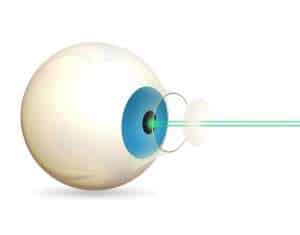Category: We Can Help With
Medicated Eye Drops
July 21, 2020
No Comments
Treatment for glaucoma often begins with medicated eye drops. The goal of these medications is to lower the pressure in the eye (intraocular pressure) and ...
Read More →
Hyperopia
July 21, 2020
No Comments
People with hyperopia, also known as farsightedness, can usually see objects in the distance, but their close vision is blurry. Symptoms of untreated hyperopia include: ...
Read More →
Astigmatism
July 21, 2020
No Comments
A normal cornea — the clear front covering of your eye — has a round curve, like a basketball. However, many people have an irregularly ...
Read More →
Myopia
July 21, 2020
No Comments
Myopia, or nearsightedness, means that your eyes can see close objects clearly but struggle to see things in the distance. Nearly 30 percent of Americans ...
Read More →
Cataract Surgery
July 20, 2020
No Comments
With cataract surgery, your ophthalmologist removes the cataract-diseased lens of your eye. The ophthalmologist then replaces your natural lens with an artificial one. The Procedure ...
Read More →
Laser Cataract Surgery
July 20, 2020
No Comments
The only way to correct the clouded vision caused by advanced cataracts is surgical intervention. If you find yourself pursuing cataract surgery to remove one ...
Read More →
Presbyopia
July 20, 2020
No Comments
Somewhere around the age of 40, most people’s eyes lose the ability to focus on close-up objects. This condition is called presbyopia. You may start ...
Read More →
Diabetic Eye Diseases
July 20, 2020
No Comments
Diabetes is a condition that involves high blood sugar (glucose) levels. This can affect many parts of the body, including the eyes. One of the ...
Read More →
Age-Related Macular Degeneration
July 20, 2020
No Comments
One of the leading causes of vision loss in people who are age 50 or older is age-related macular degeneration (AMD). This common eye condition ...
Read More →


